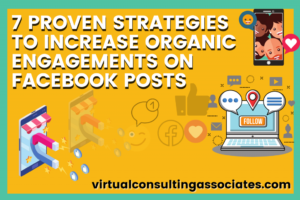What Is Self-Care?
When we examine professional self-care we first have to understand what self-care is. Self-care is an increasingly popular term, but it is not a new concept. We have written on the importance of self-care and avoiding burnout before. The Ancient Greeks saw self-care as important in making people more honest citizens who were more likely to care for others. They were not wrong. Today we understand that self-care plays an important role in physical and mental health. Research has shown that self-care has proven to be effective in countering the stresses that could otherwise lead to burnout.[1][2]
People tend to think of self-care as small acts that can be done easily to relieve stress: a run, a bath, a cup of tea. These things are important and can help curtail the growing stress in that moment, but self-care goes beyond putting bandages over a stressful life. Self-care has several pillars and it is important to maintain all of them to keep your life balanced. It is more than self-indulgences; it is a strategy of keeping yourself emotionally and physically well. And that extends into the professional aspects of your life.
What Is Professional Self-Care?
Sometimes people assume that professional self-care is about the maintenance of your professional life. They think the goal is setting your career up for the best possible growth. While setting yourself up for success professionally can be a part of professional self-care, the emphasis should be on the self- you. Balancing work, family, and personal life has always been challenging. Today our workdays are filled with expectations of multi-tasking, efficiency demands, and pushes for increased productivity. It can leave you feeling rundown. Certainly practicing self-care outside of work can help mitigate the stress caused during the workday, but it doesn’t address it completely.
Self-care permeates into other aspects of your life, so exercising and eating well can help you physically, mentally, and yes professionally. Having a good exercise and bedtime routine can help you sleep more restfully which can help you be more productive and creative and improve your mood. But self-care doesn’t have to wait for your workday to end. In fact, if you consider how many hours we spend at work, it becomes evident that professional self-care is at least just as important to our well-being and relationships.
Professional Self-Care In Practice
What does it look like to practice professional self-care? How can we implement self-care in our work-life?
Balance Your Work Schedule
Try to balance your work schedule and life demands so that no one day or week is too much. Of course, things will not always go according to plan, but if you know that a big project is coming up at work try to avoid scheduling personal activities like doctor appointments or personal projects for the same time. If you are feeling stressed and out of time at work and then rush in your personal time to try to make it to appointments or complete projects the stress from work and home will compound.
Set and Maintain Professional Boundaries
It is important to have a clear idea of what your values are and what things are important to you, such as time with family, running races, or volunteering for a particular charity. Knowing how much time is needed to meet these personal needs lets you see how what sort of professional schedule boundaries and overtime hours are ok with you. Communicate clearly what hours you are available.
If Saturday and Sunday you are home and not checking office emails tell your coworkers and clients. If you eat dinner with your family at 6:30 every evening and cannot take evening calls let your coworkers and clients know, and if someone crosses that boundary bring it up right away. Set up a rule that you will check your email once before dinner and that after dinner you are with your family through their bedtime.
This goes for other professional boundaries, such as interpersonal boundaries. If a coworker is gossiping about another coworker and you do not want to be involved you should let your coworker know in that moment that you do not want to participate in office gossip. When you speak up clearly in the moment you are maintaining your boundaries. If you wait your coworkers are less likely to remember the infraction and more likely to re-cross your boundaries.
Take Breaks Throughout Your Day
It is important to create time for small self-care breaks throughout your day. Do not try to power through your day and maximize your productivity at all costs. Research shows that productivity goes down when people do not make small breaks for themselves throughout the day. [3.]
Stretch Breaks
Taking small stretch breaks in the morning and afternoon is important, especially if you sit at a desk all day. These breaks do not have to be formal stand and stretch breaks like you are preparing to start a workout, but simply getting up and walking to the water cooler can break tension building in your muscles that can lead to pain and discomfort in your back and neck. It can improve blood flow and give your eyes a break from the computer screen so that you are more energized and better able to focus.
Social Breaks
Social breaks with a coworker while grabbing a snack from the break room, walking down the hallway with them, or passing their desk can help by reinforcing empathy for your coworkers and by reminding you that you are not alone. Being mindful and respectful of their time and asking a coworker, “How are you doing this week with the big project?” Can help maintain a sense of camaraderie among a team unit. It can be a good reminder that the stress of a busy season or big project is shared by others. Occasionally taking a minute or two to chat with a friend about something not related to work can also let you reset and return to work with less stress.
Lunch Breaks
Taking a 30-45-minute lunch break, away from your desk, to eat or walk will re-energize you for the afternoon. It is important to eat during the workday, eating a light nutritious lunch can help your body refuel and avoid the afternoon slump. If your work schedule allows for a walk or quick exercise break that can also help improve your energy and alertness levels.
Create A Healthy Work Environment
Organize your workspace so that you can find the items you need. Too much clutter can cause stress and can lead to important papers getting lost. That doesn’t mean that your desk has to be cold and impersonal. You can put up pictures of your family or pets. If there is space, you can bring a small potted plant or host a candy dish. Make sure that you have what you need to be comfortable, if the AC gets chilly, have a cardigan, if your building is old and your office gets no air circulation it might be good to invest in a small fan.
A healthy work environment involves space and interpersonal interactions. Maintaining clear boundaries about gossip and complaining are important. We all need to be able to vent or blow off steam, but if a coworker is constantly whining that negativity can bring you down too. Try to politely ask them to stop. Saying something like, “You seem really unhappy with your job/hours/projects, have you thought about ways to change those?” Or, “We all need to blow off steam sometimes, but right now that negative energy is affecting my ability to stay focused on my work.” Can help you protect your work environment.
Time Management
Your work environment will feel healthier and more manageable if you utilize good time management techniques. Create a short list of your top priorities and be concrete in what needs to be done. Instead of “make progress on project A” have “complete the market research on project A by Wednesday.” Having a list of accomplishable tasks makes the job feel more manageable.
Make sure to minimize procrastination. Assess tasks realistically and decide how much time is needed to do the task well. Do allot only enough time to complete the project if everything goes perfectly. Once you have an idea of what your time needs are and what tasks can be delegated create a schedule that allows your work to be done with adequate breaks. Do not decide to postpone a task until the 11th hour if you can begin it earlier.
Assess Your Time Resources
Before you commit to a project, assignment, or committee position make an honest assessment of what your needs would be and what resources you have. If it would leave you overextended be honest about that. If your boss assigns you a project that you feel is going to be overwhelming, do not simply accept it and stew. Inform your boss about your concrete objections. Rather than saying, “I have too much to do.” Frame your concern in terms of how it will affect other projects or clients. For example, “If I take on project B, there won’t be enough time to complete project A before its deadline.” Or “The client from project A has made repeated requests for more face-time and if I take on project B I won’t be able to meet those requests and I’m afraid it will cost us the client.”
If your boss insists, and your time is going to be overbooked, get clarification from your boss. Let your boss know that you understand what is being asked and get clarification on priorities. Saying something like, “I understand that you need me to take on project A and project B, even though it might hurt our client relationship. Can you please let me know what aspects and deadlines take priority so that I can make sure that I am handling things the way you want?”
How to Start
If you have not been practicing professional self-care it can feel impossible to start. It is often difficult and uncomfortable to make sweeping changes. Sometimes we don’t even know what those changes should be.
Deciding On Changes
Balancing your work and personal schedules can be a good way to start. If you know there is a busy time coming up for your company see if you can finish personal tasks before it starts. If not, are there are any that can be postponed until after your busy work schedule winds down.
After that decide what your optimal professional boundaries are, compare those to your work culture. Is what is permissible what you are actually doing? If you can change what you are doing to align more closely with what you have decided is optimal start making that shift. Maybe you have a habit of staying until 6 as you try to wrap up your work, but you want to start leaving closer to 5 when the customer interactions end. Identify what tasks are making you stay later and why.
Creating Small Changes
If you are helping other people with their tasks or troubleshooting issues for coworkers can you start politely declining? This can give you more time to complete your tasks at the end of the day. Are you too busy interacting with clients before close to finish these tasks? If so, would it be acceptable to come in 30 minutes earlier the next day? You could to wrap up the tasks then so that your evenings are free.
If you don’t typically take breaks, set a schedule that includes a trip to the water cooler or break room. Try to enjoy the stretch and use it as a chance to reset. To integrate a real lunch break, set aside time away from your desk to eat and stick with it. Even if it can only be 1-2 days per week at first.
Keep in mind what your optimal workday would look like framed through a professional self-care lens. Then assess what is reasonable and practical. Then remind yourself to work toward that. Professional self-care, like all self-care, is a work in progress. Not all days will go smoothly and sometimes plans will have to change, but it is important. Caring for yourself in this aspect of your life will help improve your productivity and satisfaction with your work life as well as improve satisfaction in other parts of your life.
References
[1] https://pubmed.ncbi.nlm.nih.gov/19042895/
[2] https://pubmed.ncbi.nlm.nih.gov/30081886/
[3] https://www.inc.com/minda-zetlin/productivity-workday-52-minutes-work-17-minutes-break-travis-bradberry-pomodoro-technique.html







